Please Welcome…Frank Creed
(*Originally posted July 2008)

What a joy to have Christian novelist and speculative fiction pioneer Frank Creed as our interview guest at WhereTheMapEnds.com.
Frank is one of those guys you need to get to know if you’re serious about Christian speculative fiction fandom. Not only is he a novelist himself, he is the founder of The Lost Genre Guild, one of the premier nexus points on the Internet for all things pertaining to the genres we love.
Frank is also the head literary critic for thefinishers.biz, and a Biblical cyberpunk artist.
His near-future, high-tech, dystopian science fiction may be found between the covers of the Light at the Edge of Darkness anthology, and Flashpoint: Book One of the Underground. War of Attrition: Book Two of the Underground, and Into the Underground: the Role-Playing Game will be released in the autumn of 2008. Frank’s literary art is published by The Writer’s Café Press.
Frank says he would love to be known as a guy who’s touched lives. “This has to be at least part of any writer’s motivation,” he says, “and it’s blown me away how the Boss has allowed me to do this through both the Lost Genre Guild, and my own fiction. To glorify Him by helping others, entertaining, affecting spiritual sojourns, and inspiring people to live their faith—to be able to pay the mortgage while doing that full-time would be stunning.”
So without further ado, here’s the interview with one of the primary movers and shakers working to promote Christian speculative fiction today.
WhereTheMapEnds: Catch us up with what’s going on in your life.
Frank Creed: My BOCHOK (butt on chair, hands on keyboard) time has been spent on War of Attrition: Book Two of the Underground, and keeping up with clients’ manuscripts from thefinishers.biz—a manuscript evaluation service.
Like most Christian speculative fiction novelists, I have another job. Health problems have kept me from it until last month, and now we’re putting in overtime at Subaru of Indiana—with these gasoline prices, big SUV people are downsizing. My handicapped body is still adjusting to that.
WhereTheMapEnds: What is your favorite speculative novel of all time (Christian or secular) and why is that your favorite?
Frank Creed: George Orwell’s 1984. I’ve never found another novel that gave such a complete visionary warning about how humanity’s dark side could oppress with technology. It’s said that cultural trends in the United States follow Europe’s by many years. In our post-9/11 age, we are at the point of flirting with fascism, as Europe did in the 1930s. I hope my own fiction carries shades of an Orwellian warning.
WhereTheMapEnds: Indeed, I believe it does. I’m fascinated by how authors’ favorite fiction tends to influence their own writing. Your writing, in turn, will influence other writers down the line. It’s as if one of our jobs as novelists is to keep voicing the themes that connected with us, that they may connect with a new generation of readers.
So, Frank, tell us a bit about the Lost Genre Guild: what it is, how it got started, your vision for it, etc.
Frank Creed: It started a long time ago in my childhood. My mother would take us kids into Christian bookstores and I would search the fiction shelves for science fiction and fantasy. The only titles that were ever there were C.S. Lewis’ Chronicles of Narnia and Space Trilogy. I finally gave up looking, and found my favorite fiction on general market shelves.
After learning the craft and researching the business end of being a Christian speculative fiction novelist, I discovered how little was out there for us. I would have founded the Lost Genre Guild the few months earlier, but got involved with the Light at the Edge of Darkness anthology, and put it off until my three cyberpunk short-stories had been submitted.
My vision for the guild back then was to become the Web’s go-to-place for Christian speculative fiction.
Since then I’ve discovered a few of us who all had the same idea. We’re all listed on the Lost Genre Guild resource tab. For each of us our focus is a little bit different, but helping promote our lost genre as best we can is what we all do.
WhereTheMapEnds: Thank you for the work you’ve done to promote the genres we love. What made you want to write Christian speculative fiction?
Frank Creed: I knew I wanted to write fiction since a program at our public library when I was seven or eight years old. I discovered fantasy and science fiction, then role-playing games a little later in my youth. It wasn’t until I was saved in 1992 after reading The God Who Is There, by Dr. Francis Schaeffer, that I knew I wanted to write Christian sci-fi.
The answers to all the great philosophical questions are found in the Bible. Men like Schaeffer and Lewis presented these answers in both fiction and nonfiction, but not in a language easily understood by regular folks. Beyond 12th grade I’m self educated, so there’s no way anyone would publish any of my nonfiction until I gained respect as a writer.
Science fiction has been called the handmaiden of worldview, and is definitely the fiction genre for the presentation of such answers.
WhereTheMapEnds: What is your favorite speculative genre to read? To write? If they’re different, talk about that.
Frank Creed: Definitely cyberpunk on both counts. I usually have to define that sci-fi subgenre for people. Cyberpunk is not aliens and spacecraft, but near-future sci-fi in a dystopian setting (dystopian is the opposite of Utopian) featuring lots of high-tech toys that focus on the melding of human flesh with technology. Because the setting is such a dark place, the good guys are usually underdogs bucking the system.
WhereTheMapEnds: A great early example of cyberpunk is William Gibson’s Neuromancer. Frank, how would you characterize the current state of Christian speculative fiction writing and/or publishing?
Frank Creed: Blossoming. Publishers of Christian speculative fiction have put off writers for so long that there is a lot of talent out there. While the major publishing houses have yet to sink their teeth into serious adult spec-fic, the young adult market is opening up. At least by the time these same readers mature, I hope publishers will have fully embraced the genre.
WhereTheMapEnds: Yes, I like to say that’s the generation that’s going to save us. So what have you seen that encourages you about Christian speculative fiction writing and/or publishing?
Frank Creed: Two years ago Writers Digest magazine predicted that religious fiction would be among the biggest growth markets over the next five years. In that same amount of time even the Christian publishing houses have signed a few speculative fiction authors. Interest on the Web is gathering steam, and I am hopeful that it manifests in the real world.
WhereTheMapEnds: What have you seen that discourages or frustrates you about Christian speculative fiction writing and/or publishing?
Frank Creed: How the business of selling books has trumped one of the two strongest genres (speculative fiction; the Western is the other), for tales of good and evil. Other worldviews have used speculative fiction for their own ends for decades, but as usual Christendom has been slow. In this case, slow to recognize the value of a great fiction ministry.
WhereTheMapEnds: What would you like to see changed regarding Christian speculative fiction writing and/or publishing?
Frank Creed: I’ll be happy when speculative fiction outsells romance and historical genres in Christian bookstores. 🙂
WhereTheMapEnds: Ha! Why prolong your happiness so long? [grin] What do you think Christian speculative fiction writing and/or publishing will look like in three years? Five years? Ten years?
Frank Creed: In reality we have nowhere to go but up. If I can mix a metaphor, our little snowball is gathering steam. Ten years is enough time to have a generation raised on computer games growing up and looking on fiction shelves. If the major publishing houses of the CBA have not awoken by then, the free market will have passed them by and they will have completely missed out.
WhereTheMapEnds: And that’s where Marcher Lord Press comes in. Small indie presses can step into meet a need the big publishers don’t seem willing or able to meet. So, Frank, what advice would you give to someone who aspires to write and publish Christian speculative fiction?
Frank Creed: A housecat glorifies God simply by being a housecat: by being what God made it to be. Every individual Christian, however, has free will, and must choose to glorify God by using the gifts He’s given. It doesn’t matter whether a Christian is a writer, a pro golfer, or a janitor, the chief end of man is to glorify God with one’s best effort.
If you have a story to tell, it’s your job to learn the craft and be the best you can be for His glory. Use online critique groups. Find the good critiquers, crit a piece, then look at their comments and see what you missed. You’ll be amazed how quickly you learn.
WhereTheMapEnds: Good advice, Frank. What’s the best part about writing and publishing Christian speculative fiction?
Frank Creed: “Fortune and glory, kid; fortune and glory.” (Indiana Jones and the Temple of Doom)
Seriously, touching lives for His glory by writing what you love… How can you beat that?
WhereTheMapEnds: What’s the best speculative story (Christian or secular, book or otherwise) you’ve encountered lately?
Frank Creed: While you’ll find it shelved under the historical romance label, mark me down for M. L. Tyndall’s Legacy of the King’s Pirates trilogy. The main characters are Christian privateers hired by the British to raid the Spanish Main in the Caribbean.
Christian pirates? I call that alternative history. I have a very difficult time finding a book so well written that it takes me away and I stop critiquing. Ms. Tyndall’s fiction can do that. She’s my favorite living novelist.
WhereTheMapEnds: Well, Frank, what else would you like to say to the readers of WhereTheMapEnds.com?
Frank Creed: In our cultural history, the Protestant work ethic has Christians, and particularly men in our subculture, completely ignoring the arts. Unless it’s church choir or band, the arts are perceived as a silly, frivolous waste of time. A creator made us in His own image, so why do we lag behind the rest of our culture in everything?
In our free market that runs on supply and demand, we obviously must not, as a psychographic, pursue serious art that glorifies our Creator. It smacks of a dead soul to me.
Logically, if we believe what we say we believe, we ought to be blazing artistic trails for the rest of North America rather than following, and following only after others have proven that there’s money to be made. Our priorities are askew.
Don’t be afraid to live your faith, no matter where He leads.
That’s All for This Time
What a wonderful interview, huh? Thanks again to Frank Creed. Be sure to visit Frank online.
As a special gift Frank has let us get a glimpse at an unpublished story of his: it’s cyberpunk with an Irish Catholic twist. It’s posted in the Special Features section. If you like what you see there, be sure to check out Frank’s published fiction, too.

